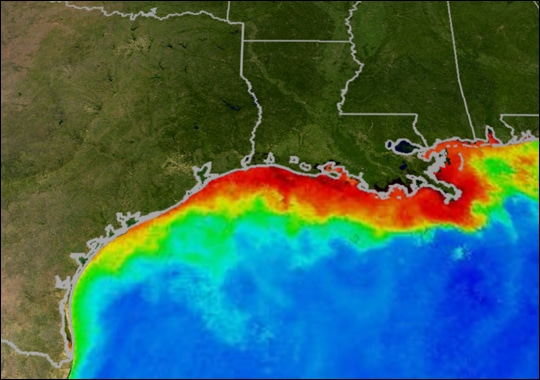It has been a particularly nasty week for climate news.
First came word that Antarctica was warming with potentially catastrophic consequences. Then a study that climate change was killing off forests in North America. The latest grim finding is that global warming will lead to massive ocean dead-zones that may persist for 100,000 years.
This latest horseman of the apocalypse trotted out in the form of a study published in the journal Nature Geoscience by researchers from the University of Copenhagen. They found that warmer ocean temperatures from climate change will lead to enormous areas depleted in oxygen and unable to support marine life.
“We conclude that substantial reductions in fossil-fuel use over the next few generations are needed if extensive ocean oxygen depletion for thousands of years is to be avoided,” the study says.
While it seems likely that we will continue this uncontrolled experiment with the planet’s biosphere and see what happens, researchers are suggesting this might not be such a hot idea.
“What mankind does for the next several decades will play a large role in climate on Earth over the next tens of thousands of years,” said geochemist Gary Shaffer of the University of Copenhagen.
Why so long? The reasons have to do with the enormous inertia of the world’s oceans. Scientists estimate that it would take literally centuries for natural processes to remove enough carbon from the atmosphere to bring dead-zones back to life.
The term “dead-zone” obviously does not bode well for the world’s seafood industry. According to researchers, “it would affect the ability of the ocean to produce fish, shellfish, the types of things that people eat. It’s not just oxygen: it’s a switch in ecosystem structure, ” said Shaffer.
This latest research does not include the frightening implications of the world’s oceans becoming more acidic – also due to burning fossil fuels. The marine environment has already become 30% more acid since the industrial revolution, and is on track to hit 150% by the end of the century. This sea change in ocean chemistry will have devastating implications for marine life such as coral and plankton that form the foundation of the ocean ecosystem.
Nor does this latest research consider the possibility of the massive amount methane ice buried in the ocean sediments burbling to the surface in a warming world.
If that happens, there will a couple more Old Testament ponies going for a little ride.
Some of the freed methane would combine with dissolved ocean oxygen making the dead zone issue worse.
The rest would be released into the atmosphere, greatly compounding our climate change problems. Methane is 21 times as strong a greenhouse gas as carbon dioxide.
To recap: dead-zones, acidification and methane are all a direct result of the continued burning fossil fuels. According to Shaffer, “You put those together and you have a potent mix.”
Several more reasons to kick the oil habit as fast as possible.
Subscribe to our newsletter
Stay up to date with DeSmog news and alerts






